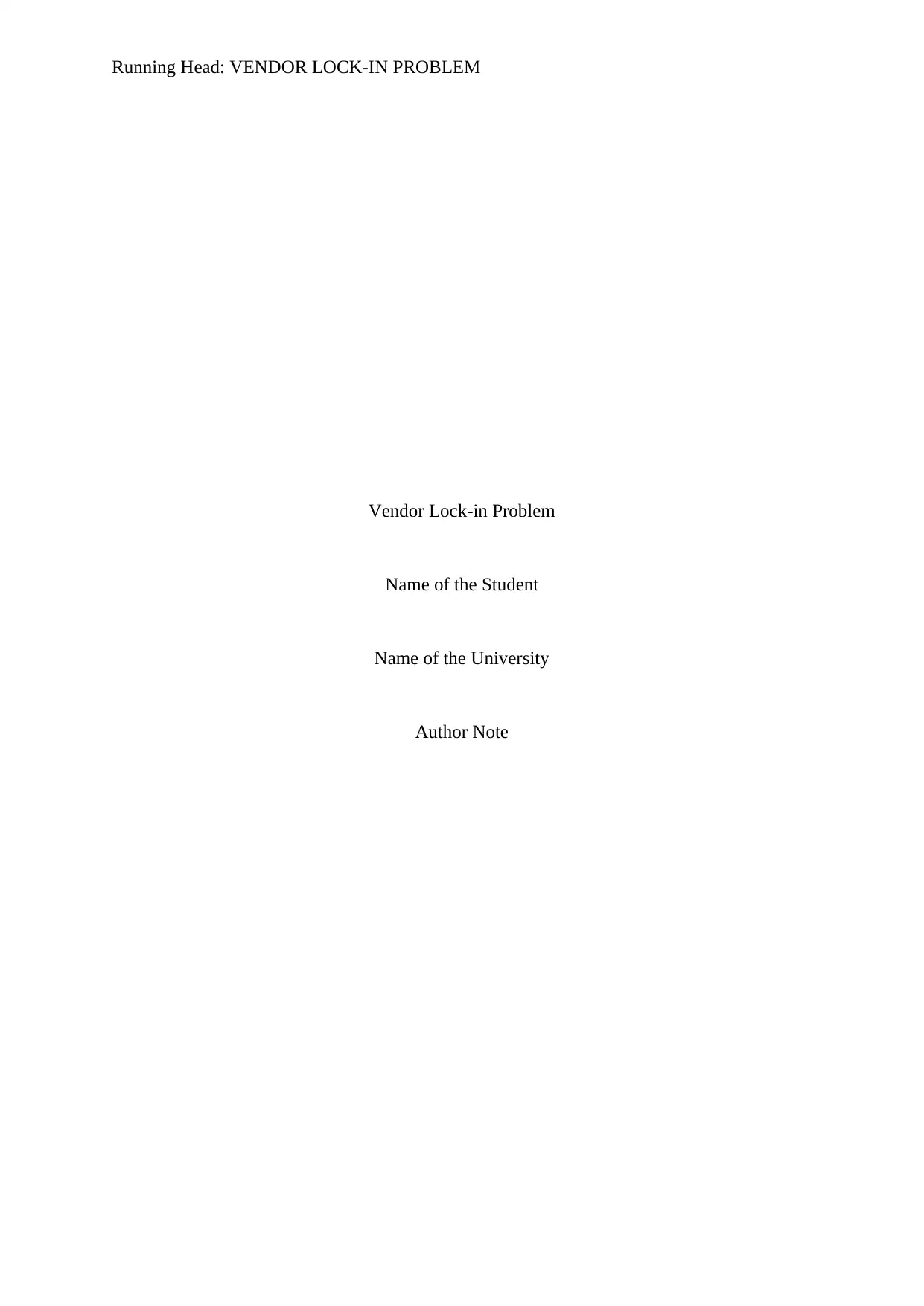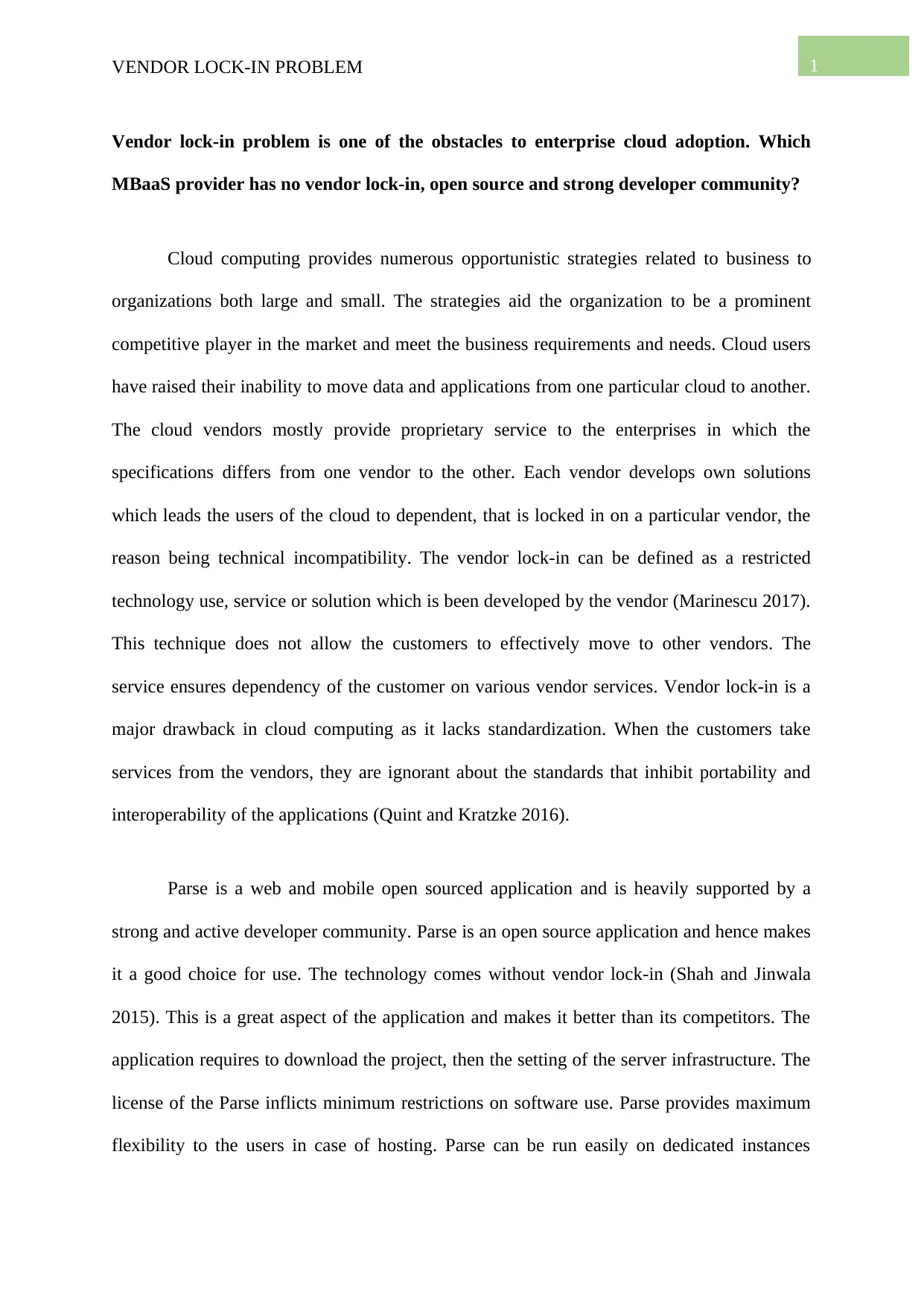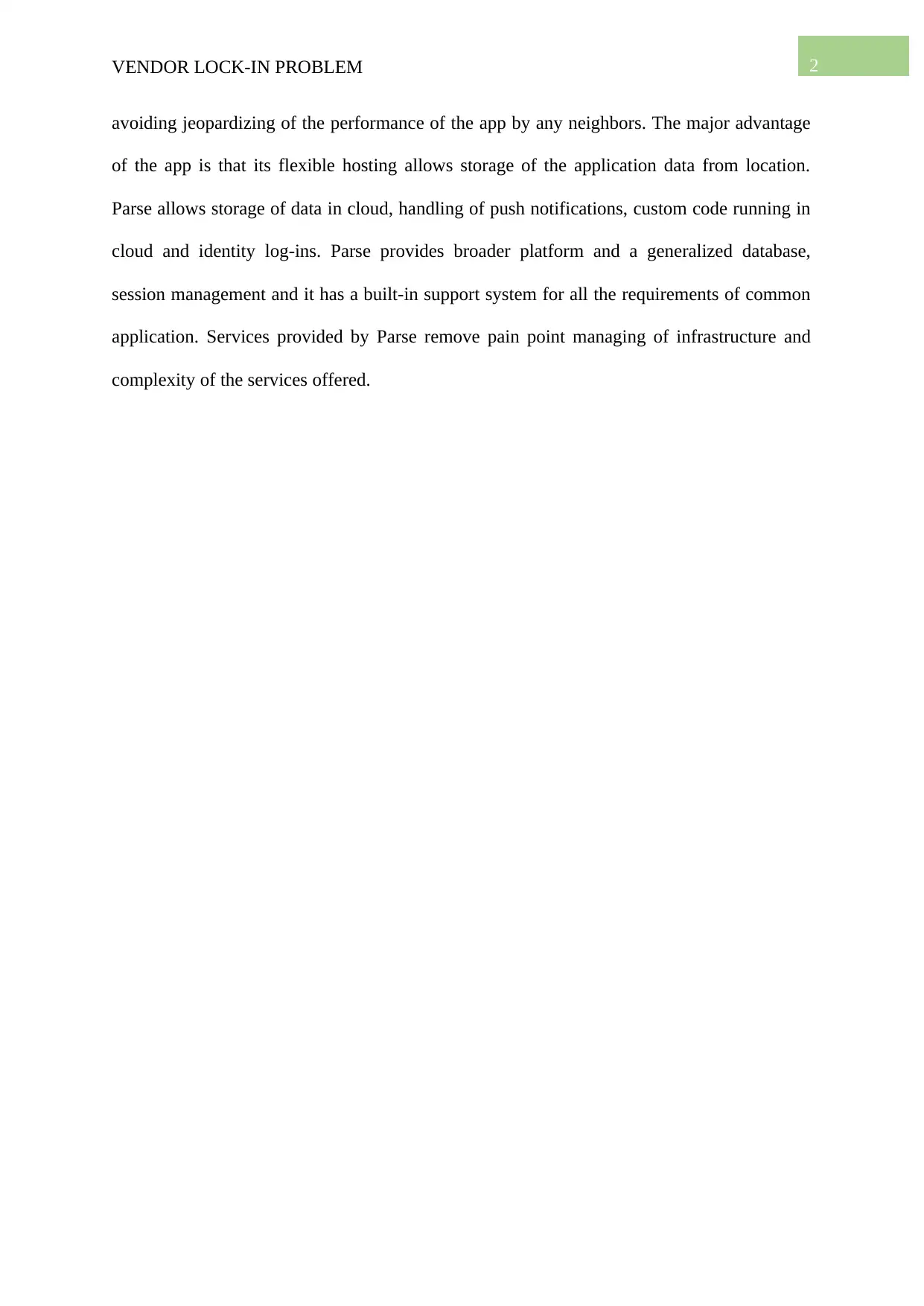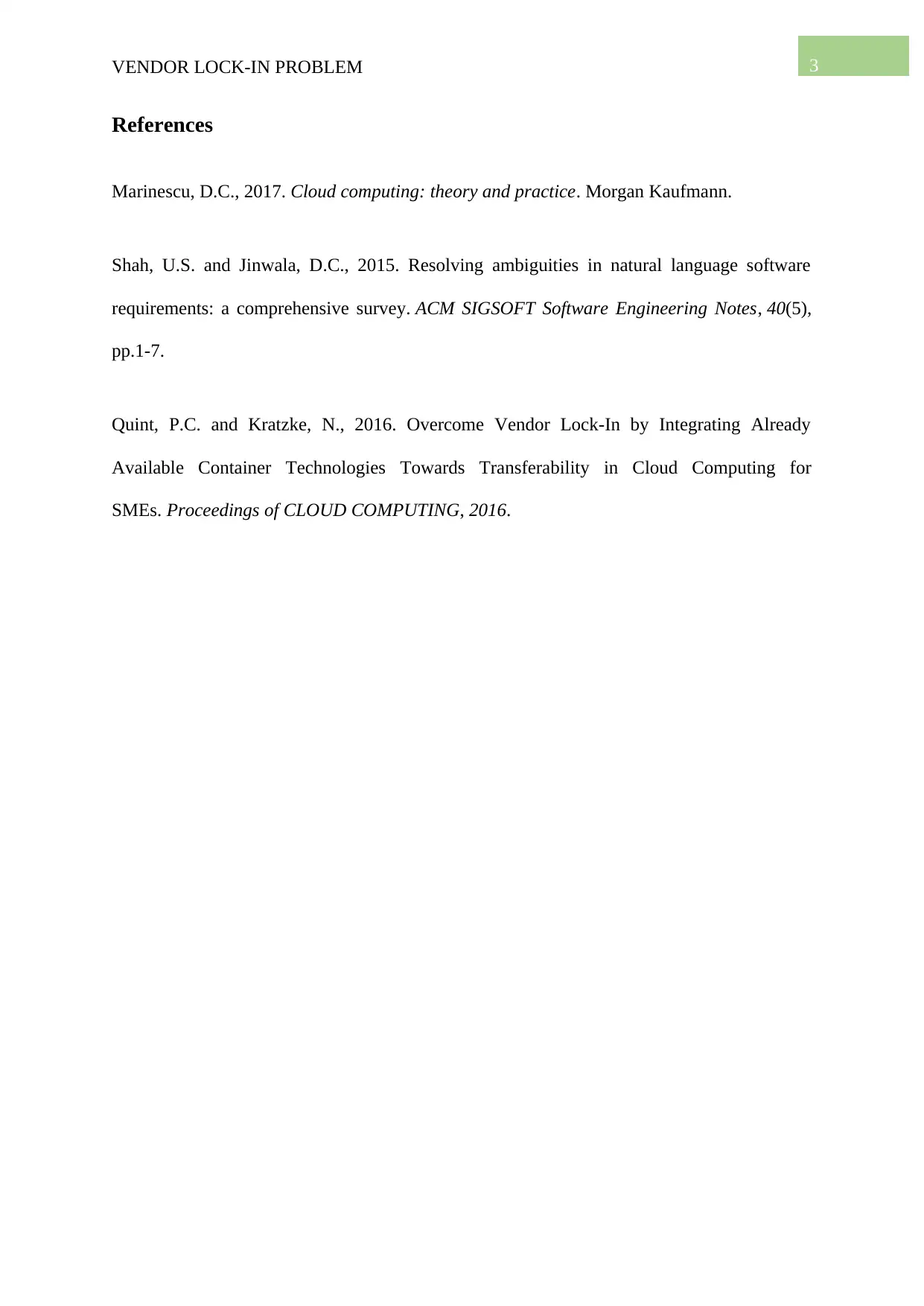Vendor Lock-in Problem: Cloud Computing and MBaaS Solution
VerifiedAdded on 2023/01/11
|4
|562
|89
Report
AI Summary
This report addresses the vendor lock-in problem in cloud computing, a significant obstacle to enterprise cloud adoption. The report highlights the challenges of vendor dependency and the lack of standardization that restricts data and application portability between cloud vendors. It explores the concept of vendor lock-in and its impact on cloud users. The report then focuses on Parse, an open-source MBaaS provider, as a potential solution, emphasizing its open-source nature, strong developer community, and lack of vendor lock-in. The report discusses the benefits of using Parse, including its flexible hosting options, data storage capabilities, push notifications, custom code execution, and identity logins. Parse is a comprehensive platform with a generalized database, session management, and built-in support for common application requirements, offering a solution to the complexities of infrastructure management. The report concludes by highlighting the advantages of Parse, such as its flexibility and its ability to avoid performance issues. The report also provides references to support the findings.
1 out of 4










![[object Object]](/_next/static/media/star-bottom.7253800d.svg)